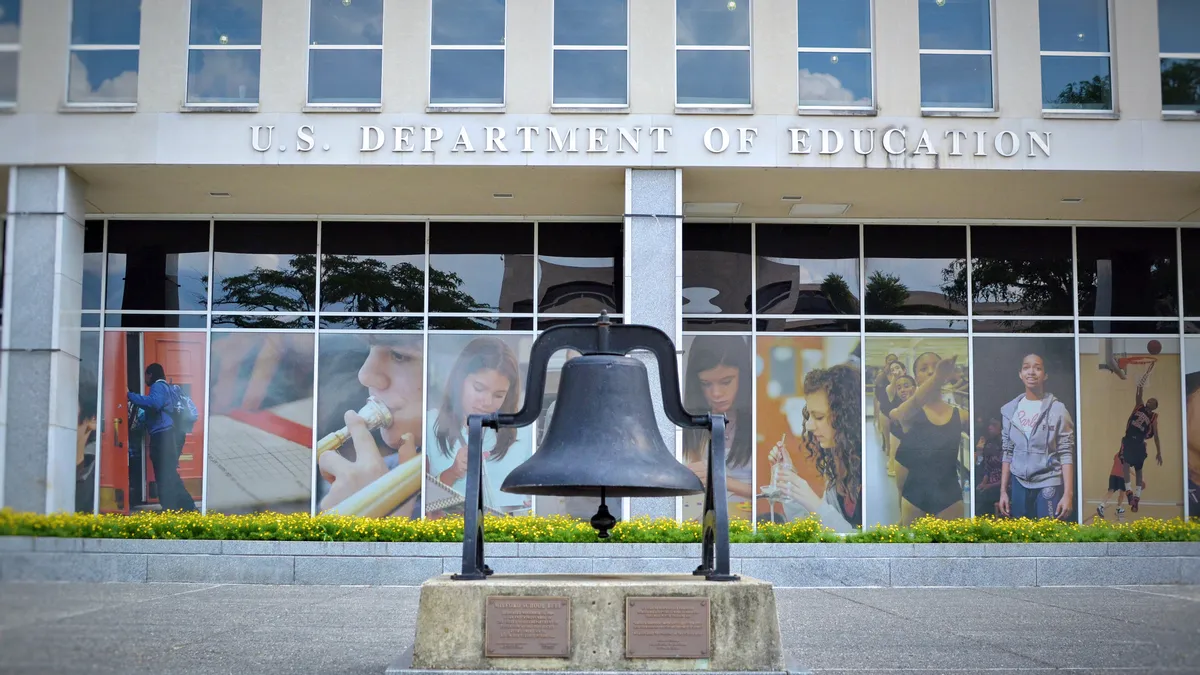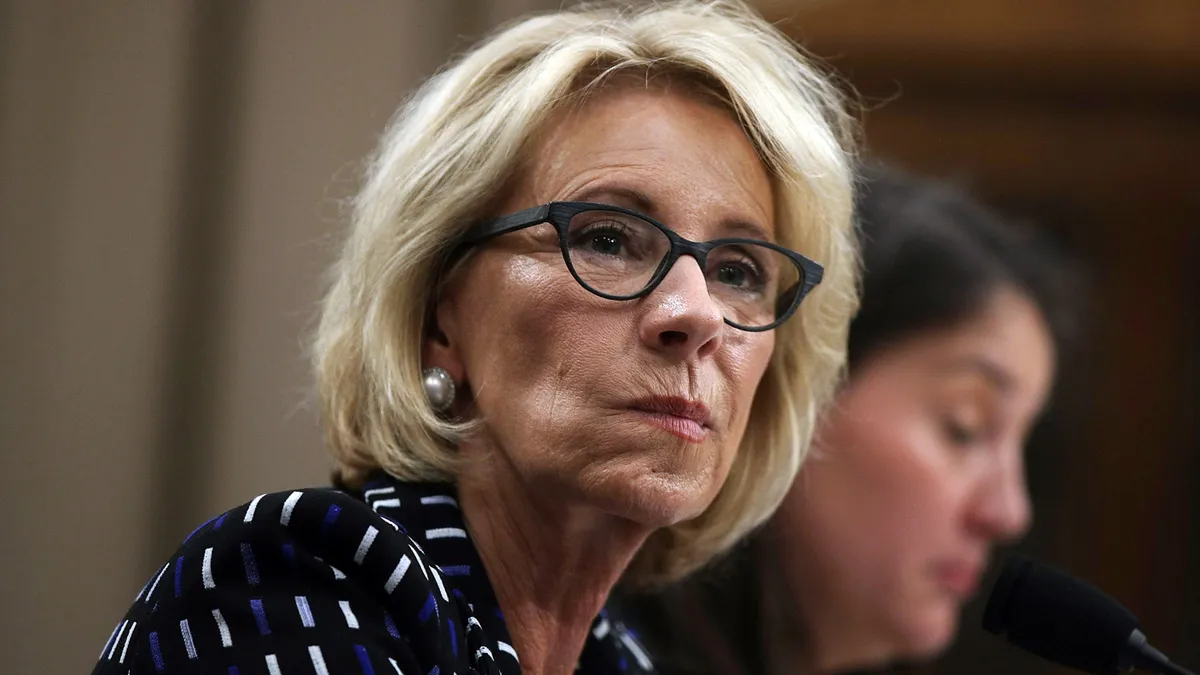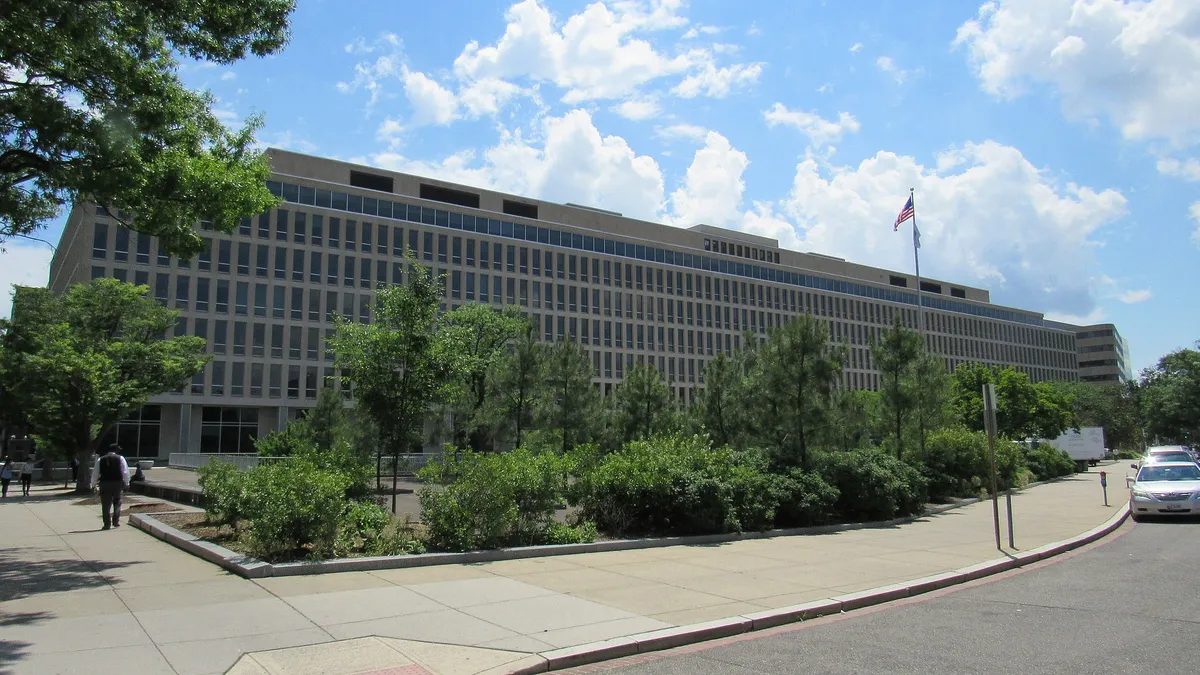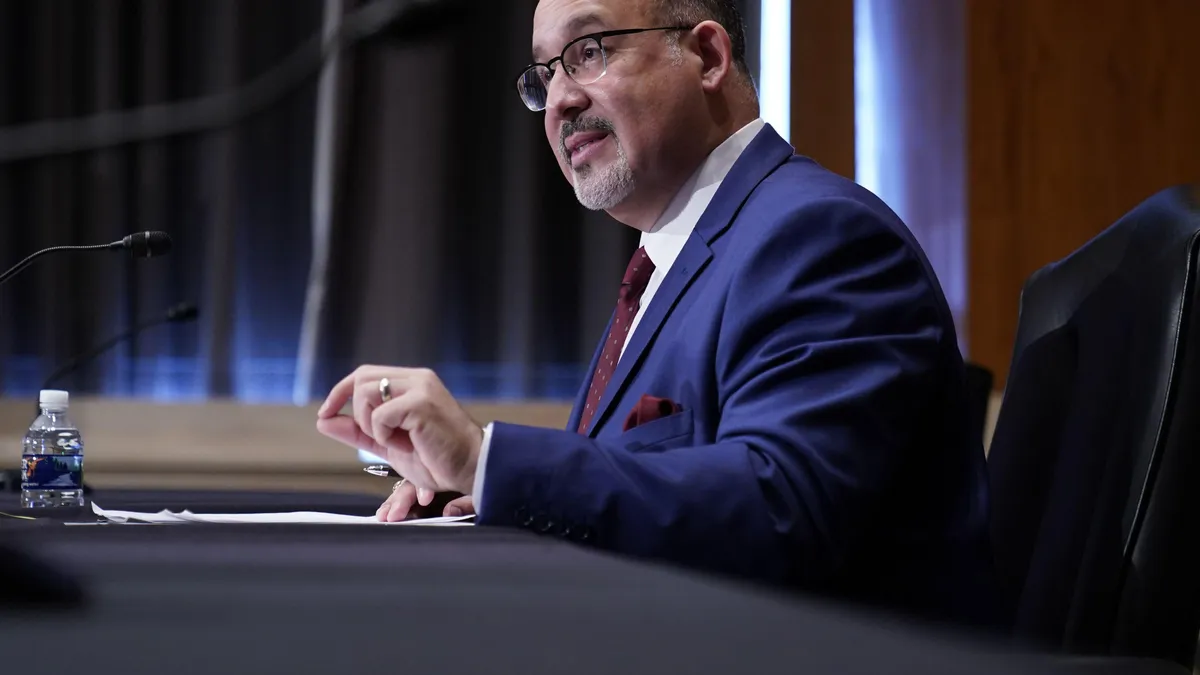Dive Brief:
-
The Trump administration's Education Department took "unprecedented action" by allowing two colleges to temporarily operate as nonprofits without ensuring they met the criteria to do so, according to a new government report.
-
The finding concerns two Art Institutes acquired by a Los Angeles nonprofit. In 2017, the Dream Center agreed to buy the two colleges along with 11 others from a for-profit college operator, but its attempt to run them all quickly failed.
-
The Education Department's Office of Inspector General, its internal watchdog, also found the two schools received around $12 million in federal student aid over five months, even though neither were eligible for such funds.
Dive Insight:
The Dream Center entered into an agreement in 2017 with Education Management Corporation to buy several for-profit schools, including 11 Art Institutes, and convert them into nonprofit colleges. The deal was disastrous from the start, and several of the schools closed suddenly in the years following the purchase.
Before the venture failed, an accreditor found two of the schools the Dream Center bought didn't meet the accreditation criteria, and it planned to monitor them while it reviewed its candidacy. Over that period, however, the schools were ineligible to receive Title IV aid, the OIG report stated. But several months later, the Education Department took the "unprecedented action" of retroactively granting the schools nonprofit status so they could keep giving students federal aid, the report states.
These events are the subject of at least one lawsuit. A group of students from the Illinois Institute of Art sued three alleged high-ranking employees at the Dream Center, arguing they intentionally hid that the school was losing accreditation.
A congressional inquiry completed last summer also examined the Education Department's role in the controversy. It found agency officials worked with the schools to secure retroactive accreditation. Yet the department didn't officially loosen its rules around backdating accreditation until later.
The OIG report flagged other issues with the Dream Center's purchase of the 13 schools. Since 2006, the Education Department had required Education Management Corporation to post a letter of credit, totaling $194 million at the time of the sale, because the schools weren't compliant with financial responsibility regulations.
But when the Dream Center took ownership of the colleges, the Education Department reduced the letter of credit to about $108 million — though one agency office flagged potential financial and operational risks with the purchase. The OIG report said the department lowered the amount amid threats from the Dream Center to back out of the deal, which would have led to the immediate closure of the schools and left 34,000 students unable to finish their education.
The Education Department pushed back on some of the findings in its review of the draft report earlier this year, OIG stated, arguing it had taxpayer and student best interests in mind. The OIG report makes several recommendations, including that the department's student aid office keep track of when it deviates from regulations or internal policies, and to develop policies for reviewing and approving for-profit schools' requests to convert to a nonprofit status. The Education Department did not immediately respond to Higher Ed Dive's request for comment Thursday.
Career Education Colleges and Universities, which represents for-profit schools, blamed staffing shortages at the Education Department for contributing to the alleged failures in the report. “The Dream Center change in ownership transaction had significant red flags that were overlooked,” CECU President and CEO Jason Altmire said in a statement. “[W]e support increasing resources dedicated to review such transactions in a timely yet thorough manner."
























